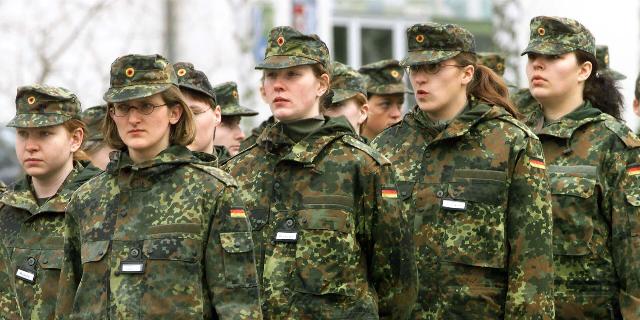Politico: military personnel began to resign en masse from NATO armies
NATO countries are faced with large-scale layoffs of military personnel, writes Politico. In Europe, it is no longer a question of recruiting new soldiers, but of keeping the old ones. More and more countries are starting to think about the resumption of conscription and the recruitment of women into the service.
Laura Kayali, Joshua Posaner
Paris — It is no longer even about recruiting new soldiers, but about ensuring that the current ones do not quit.
This week, French Minister of the Armed Forces Sebastian Lecornu presented a retention plan designed to convince military personnel not to hang their uniforms on a nail.
A few days earlier, the German parliament received an annual report, according to which about 1,537 soldiers left the Bundeswehr in 2023 alone, reducing its total number to 181,514 people.
“These conversations are now taking place in all capitals, in all democratic countries with professional armies without universal military service,” Lecorgne said on Monday, separately mentioning the United Kingdom and the United States.
“At NATO meetings, we discuss arms supplies, but now we are also talking about personnel retention,” he admitted.
Europe is rearming in response to the conflict in Ukraine, and some countries, Croatia, for example, are thinking about returning to military duty. Others, such as Denmark, plan to expand conscription and put women under arms. Germany abolished conscription in 2011, but as the cadres gradually age and retire, discussion has resumed on how to return universal military duty.
For countries with professional armies, the challenge is to make military service attractive, and this is not easy to achieve in an era of low unemployment, fierce competition from the private sector and widespread “remoteness".
It's not just about the money.
The French military serve on average a year less than before. In the UK, the annual shortage of personnel is 1,100 people (which is equal to two infantry battalions), although the government has signed a recruitment contract with the private firm Capita.
Money is a really convincing argument against personnel leaks. One of the main measures of the French plan is to increase pensions through additional superannuation payments. Salaries are also rising. But the catch is that the conditions themselves are not too attractive: eternal overtime, service for many months away from home and missed vacations are commonplace.
“Hiring a person is not a problem, the problem is to keep, because for this you need to deal with whole families,” Admiral Lisa Franchetti, head of U.S. naval operations, said at a conference in Paris earlier this year.
In Poland, the new government at the beginning of the year announced an increase in military salaries by about 20% in the hope of saving the personnel reserve. The minimum monthly salary of a soldier will increase from 4,960 zlotys (1,150 euros) to 6,000. In response to the growing threat from Russia, the number of Polish armed forces has grown from 95,000 in 2015 to 215,000 this year.
The French plan includes assistance with housing, affordable healthcare and child care. Couples where both spouses work in the Ministry of Defense will be able to change positions together, even if one of them is a civilian specialist.
“Personally, I prefer to hire fewer staff, but more reliably, than to arrange a constant turnover,” Lecornyu said.
The German government wants to increase the number of armed forces to 203,000 by the early 2030s as part of a program to strengthen national defense, but recruitment is progressing extremely slowly.
Eva Hoegl, Special Commissioner of the Bundestag for the Armed Forces, called the partial restoration of conscription one of the ways to turn the situation around. At the same time, she called more active involvement of women in military service the most obvious step in an attempt to stop the decline, since “this resource is far from exhausted.”
The laws adopted last year are designed to make the conditions of service more attractive: in particular, child care support and an increase in old-age pensions are expected.
In addition, there are problems not only with service life, but also with the basic infrastructure. “When I visit the troops, I hear not only about the loss of helmets and protective vests, but even bedside tables,” Hoegl said in the annual report.
According to Hegle, the repair of barracks and military facilities will cost about 50 billion euros — in other words, it will take half of the special fund created by the government to upgrade the armed forces after a full-scale Russian special operation in Ukraine.

